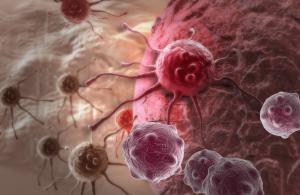Be aware of cancer signs and symptoms
Date published:

Vital to detect cancer early
Detecting cancer early increases the chances of successful treatment.
With advances in treatment and care over recent years, there is often a lot that can be done to tackle cancer.
But fear of what the doctor might find or feeling embarrassment about symptoms causes some people to put off getting checked.
Set these concerns aside and speak to your GP if you have any signs or symptoms.
Signs and symptoms
Some signs and symptoms you should ask your doctor to check out include:
- coughing up blood or blood-stained phlegm (sputum)
- blood in urine
- blood mixed through a bowel motion (stools)
- a change in bowel habit that lasts for three weeks or more
- unexplained, significant weight loss (5kg/ 10lbs over a couple of months)
- a lump anywhere on your body
- changes on your skin or to an existing mole (such as itching, bleeding or a change in shape or colour)
- a sore that doesn’t heal
- symptoms that refuse to clear up, for example a cough or hoarseness that lasts for more than three weeks
- starting to bleed again after the menopause
- mouth ulcers that have not healed after three weeks
- food regularly seeming to stick on the way down when you swallow
You can find out more, including what to do if you’re concerned, at the following links:
In many cases, these symptoms will turn out to be a sign of something far less serious, but it is always best to get them checked out.
Reducing the risk
There are many things that you can do to reduce the risk, such as:
- if you smoke, stop
- keep the amount of alcohol you drink within safe limits
- take regular exercise and aim to keep your weight within the recommended BMI range
- avoid too much sun and ultraviolet rays – use sunscreen and a hat and don’t use sunbeds
As well as being aware of signs and symptoms at all times, you should go for cancer screening if you are invited.